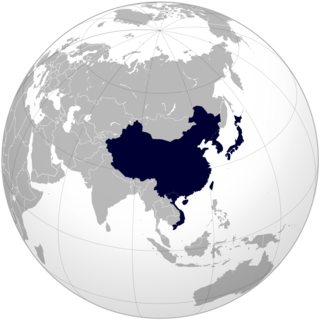How English Teaches Us About East Asian Cultures
Medical Pharmaceutical Translations • Jul 31, 2019 12:00:00 AM

Leave it to the world’s lingua franca, English. Spoken widely throughout the world, English can often be found sneaking its words into other languages and staying there either unchanged or transformed through translation. As expected, all languages change and expand over time. And those English words get around. They specifically have integrated into East Asian countries in the most interesting (and different) ways and, in doing so, have taught us a lot about the national identities, cultures and the languages of the places they infiltrate.
China
Written Chinese is all hieroglyphs. Each character represents a meaning, not a sound. Hieroglyphic languages covey a lot in one character. When English words are translated into Chinese, the meaning can be lost in the process. It isn’t easy to convey the right meaning every time.
Chinese translation of English is more of an art than a science. For example, Coca-Cola products were translated using Chinese characters that mean “entertainment to the mouth” conveying Coca-Cola’s taste.
While some translations are flawless, some miss the mark. You may have heard about Mercedes-Benz using the word Bensi when entering the Chinese market. When they realized they would not sell many cars when their brand name translated into “rush to die” in Chinese, they quickly re-branded to Benchi, meaning “run quickly as if flying.” I bet this switch helped their bottom line.
Other English words such as proper nouns are not translated at all. The Chinese just use similar sounding words.
Although China takes pride in its writing system and language’s influence in East Asia, it is quite arduous when it comes to translation of English words. Most of the translated words in Chinese are not communicable to other people. This can affect their interchange of ideas in our globalized world.
Other East Asian countries choose a different path…
Japan
Japan has three distinctive yet closely interconnected writing systems that have been heavily influenced by China and the West. The three systems are:
Hiragana, the Japanese basic syllabic writing system
Kanji, the Chinese characters that complement Hiranga
Katakana, which uses phonetic representation of foreign words like English.
Japan uses many Katakana words that are based on the sounds of English words, but their pronunciation is distinctively Japanese. This makes it hard for English speakers visiting Japan to understand what they mean in Japanese even if they are direct translation of English words.
It is also common for Japan to largely ignore overseas markets in favor of concentrating their efforts on their own domestic markets. They focus on conforming to Japanese culture and emphasize speaking Japanese. While Japan became a pioneer and both a wealthy and prosperous country, it has also created its own unique isolation. Shifting to a more global view has been slow in Japan. Ironically, even though Japan has added many English words to its language, their English proficiency is still quite low.
South Korea
Written Korean was once based on the Chinese writing system and was completely different from the spoken Korean. It is now based on Hangul, which combines both written and spoken Korean.
Hangul is phonetic so it translates foreign words based on sounds. Because of this, the Korean language can easily add new English words and use them as if they were Korean, even if there are slight differences in pronunciation. South Koreans are not averse to using their own English to communicate.
Because of the all-inclusive way South Koreans embrace English into their language, they have an easier time learning foreign languages such as English and can more easily navigate global waters.
North Korea
In contrast, North Korea rarely uses English words, as they represent evil western countries. Since the Korean War, North and South Korea had a difference of opinion on how to—or even if to— adopt English words into their languages. That leads to South Koreans finding it somewhat hard to understand their neighbors to the north.
No matter whether they use English as if it were a part of their own native or avoid it all together, the choices each country makes with regards to English reflects their deeply embedded national identity and culture.
By Ilona Knudson
